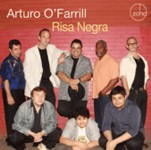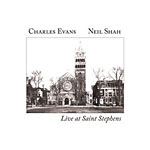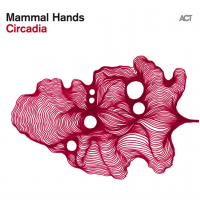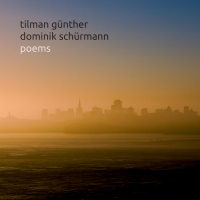Home » Jazz Articles » Album Review » Arturo O'Farrill: Risa Negra
Arturo O'Farrill: Risa Negra
"One Adam 12 Mambo" opens the way most of the pieces on Risa do, with O'Farrill in the clear—in this case, playing dissonant chords and seemingly disconnected runs in the style of Thelonious Monk. Then O'Farrill starts working over a jumping mambo figure, and the rest of the band pops up with a blasting Latin tune chock-full of complex movements and driving percussion. Altoist David Bixler tears it up while drummer Vince Cherico and percussionist Roland Guerrero mix it up, and O'Farrill counters busily over all of them. Then O'Farrill takes his turn in the spotlight with an exciting, passionate solo. He's feeling it and so is the band, as the energy and fun never fade.
O'Farrill says trumpeter and frequent collaborator Jim Seeley "keeps me grounded" and the same thing can be said of how Seeley's playing affects this set. His lines are bright, unmated and unerringly focused, demanding attention every time; his blowing solo on Bixler's "Goat Check" seems to inspire the altoist to get nasty, and the rhythm section to get even nastier. Seeley sums up the frustration inherent in "No Way Off" (O'Farrill's "tribute" to being trapped on a world cruise); and Seeley's own "Ceviche" stays open and inviting in the face of the piece's own complexities. Bixler's exploratory "The Darkness Is My Closest Friend" lets the whole band get dark and dramatic, while O'Farrill's angry "Blue State Blues"—written after the 2004 election—traverses dark territory, too, with major help from Ivan Renta's titanic tenor sax.
The classical element lies mainly in "Tabla Rasa," a mesmerizing two-movement suite commissioned by The Philadelphia Project. The first movement, "El Salon Cubano," evokes the days when jazz and Latin music lived side by side in turn-of-the-century Cuba, while "Tintal Tintal Deo" shows how all the aspects of jazz have roots that go through the hand drum, anchored by Indian tabla master Badal Roy. Though "Tabla" can be labyrinthine, moving through this maze is utterly fascinating. And O'Farrill's complex writing style is hereditary, because the intense "Crazy Chicken" was composed by 14-year-old Adam O'Farrill—who also plays a mean trumpet—and his changes are almost as intricate as his father's.
The liner notes bear a warning from O'Farrill: "If you want categorized jazz, bypass this product!" While that advice might stave off buyer disappointment, Risa Negra should be heard by all comers, if only to see how fantastic inclusive jazz can be.
Track Listing
One Ada 12 Mambo; Goat Check; Blue State Blues; The Darkness Is My Closest Friend; No Way Off; Crazy Chicken; Tabla Rasa : El Salon Cubano; Tabla Rasa: Tintal Tintal Deo, Ceviche; Alisonia.
Personnel
Arturo O'Farrill
pianoArturo O'Farrill: piano, Fender Rhodes piano; Jim Seeley: trumpet; David Bixler: alto sax; Boris Koslov: acoustic and electric bass (1-5, 9, 10); Vince Cherico: drums (1-5, 7-10); Roland Guerrero: percussion; Ivan Renta: tenor sax (3, 6); Ricky Rodriguez: acoustic bass (3, 6-8); Alison Deane: piano (5, 7, 8); Badal Roy: tablas (8); Cecelia Tenconi: flute (7, 8); Heather Bixler: violin (8); Adam O'Farrill: trumpet (6); Zachary O'Farrill: drums (6).
Album information
Title: Risa Negra | Year Released: 2009 | Record Label: Zoho Music
Tags
PREVIOUS / NEXT
Arturo O'Farrill Concerts
Support All About Jazz
 All About Jazz has been a pillar of jazz since 1995, championing it as an art form and, more importantly, supporting the musicians who make it. Our enduring commitment has made "AAJ" one of the most culturally important websites of its kind, read by hundreds of thousands of fans, musicians and industry figures every month.
All About Jazz has been a pillar of jazz since 1995, championing it as an art form and, more importantly, supporting the musicians who make it. Our enduring commitment has made "AAJ" one of the most culturally important websites of its kind, read by hundreds of thousands of fans, musicians and industry figures every month.





















